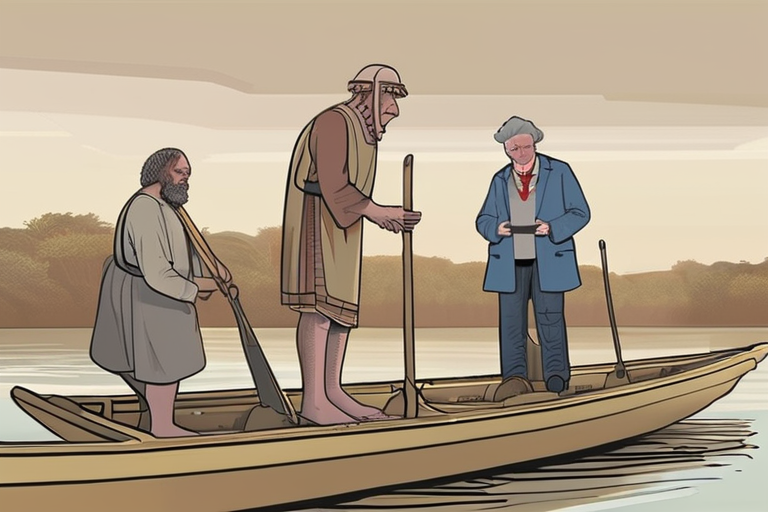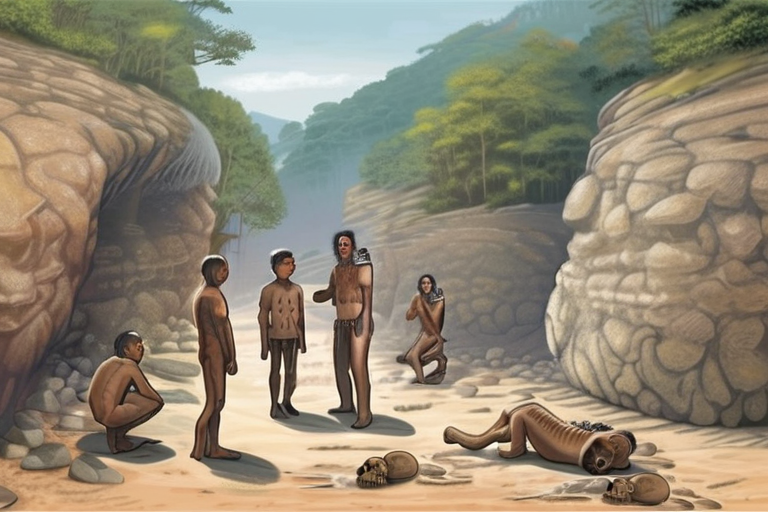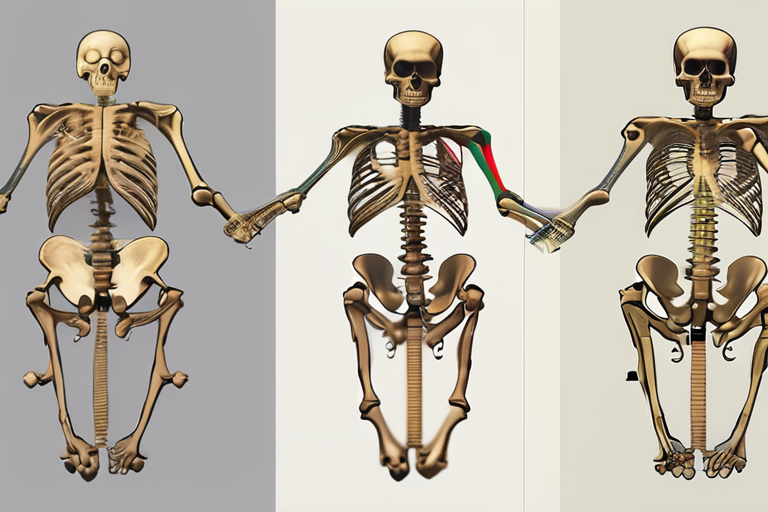Ancient Humans Settle Britain: 700,000-Year-Old Fossils Uncovered on Thames River Banks


Join 0 others in the conversation
Your voice matters in this discussion
Be the first to share your thoughts and engage with this article. Your perspective matters!
Discover articles from our community

 Hoppi
Hoppi

 Hoppi
Hoppi

 Hoppi
Hoppi

 Hoppi
Hoppi

 Hoppi
Hoppi

 Hoppi
Hoppi

The Land Bridge You've Never Heard Of: Uncovering a Forgotten Chapter in Human Migration A team of Turkish archaeologists has …

Hoppi

Archaeologists Uncover Lost Land Bridge that May Rewrite Human History AYVALIK, TURKEY - October 12, 2025 - A groundbreaking archaeological …

Hoppi

Ancient Skull from China Sparks Debate Over Denisovan Origins A recent digital reconstruction of a fossil skull unearthed in central …

Hoppi

Ancient Humans Arrived on British Isles Over 700,000 Years Ago A recent study has shed new light on the earliest …

Hoppi

Hippopotamuses Roamed Europe During Last Ice Age, Contrary to Previous Beliefs A recent study published in the journal Nature has …

Hoppi

Ancient Pregnancy Test Unveiled: Scientists Detect Hormones in Skeletons In a groundbreaking discovery, researchers at the University of Sheffield have …

Hoppi